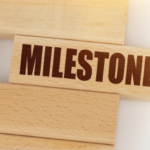Each specialty’s Milestones Working Group developed milestones for its particular field. Pediatric rheumatology has 21 subspecialty milestones, and adult rheumatology has 23.
“Let’s talk about what a milestone is, centered around competencies and a very specific granular description of activities, to see if this individual is progressing toward competency,” Dr. Brown said. “I think these competencies are really important.” The purpose of milestones is to allow continuous monitoring of programs and trainees, with a rich descriptive developmental framework for clinical competency. This kind of purposeful evaluation of trainees’ abilities during GME is essential to their long-term success, with the ultimate goal of producing highly competent physicians, he said.
But what evidence exists that milestones are a meaningful alternative to ACGME’s previous processes for evaluating medical education? A growing body of literature supports milestones, Dr. Brown said. One recent article suggested that milestones are well suited to the needs and learning style of current learners from the millennial generation with its need for frequent formative feedback.2 Emergency medicine recently demonstrated validity for its milestones, although less data exist specific to rheumatology.3
ACGME’s recently issued the Milestones 2017 Annual Report , which summarizes the results of 48 peer-reviewed studies with data for the academic year July 2016 to June 2017. Across all specialties, the central tendency of the data shows general attainment of milestones across years in program. It also found variation in attainment across residents/fellows and programs that needs to be investigated further. The published evidence acknowledges a problem with inter-rater reliability for the milestones, Dr. Brown said. But ultimately, they have been shown to be meaningful and represent a step toward ensuring the collection and use of educational outcomes data that will provide a pathway toward improving evidence-based rheumatology education in the future.
Are Milestones Really Millstones for GME Faculty?
The biggest drawback to the milestones system, countered Dr. Helfgott, is its impracticality. The questions are time consuming and redundant. And often, faculty is unable to parse out meaningful differences in what the assessment questions are asking and what is expected from faculty evaluators. He called the ACGME milestones “millstones” around the necks of faculty evaluators and recommended changing trainee evaluation to make it simpler and easier for evaluators to use.
“These 24 questions that supervisors must assess and answer are where the problem lies,” Dr. Helfgott said. “In my department, faculty say they’re crazy. They ask me: ‘How do I recognize systems-based practice? Do we really need to subanalyze four different questions about professionalism?’ Because they are highly redundant and we don’t have time, there may be a tendency toward survey glaze and to give every trainee the same rating.”



